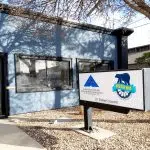
‘Now seems to be an appropriate time:’ Sask. microbiologist weighs in on lifting of restrictions
A Saskatchewan microbiologist is saying the province’s plan to lift all restrictions by the end of February isn’t unreasonable, according to the data.
Dr. Joseph Blondeau is the head of clinical microbiology at Royal University Hospital and the University of Saskatchewan, as well as the provincial lead for clinical microbiology with the Saskatchewan Health Authority.
He said those following the news will have noticed a trend occurring in a lot of western nations that have high vaccination rates and public health measures in place, where governments are beginning to move towards an end to those restrictions.
Based on the data available, Blondeau said that decision makes sense.



